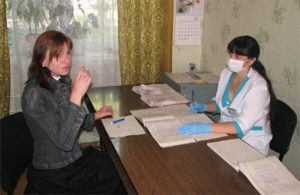
Author: Yana Kazmirenko, Ukraine
From 2018, opioid substitution therapy (OST) programme in Ukraine is financed by the Government. Activists are asking international organizations for a backup to prevent disruptions in the supply of life-saving medications.
The Government of Ukraine plans to independently procure substitution therapy programme medications in 2018. According to the World Health Organization (WHO), over 10 thousand people received therapy last year at 178 institutions throughout the country. It is planned to double the number of patients in 2018.
Ukraine wants to beat HIV
Ukraine can be proud of its implementation of OST because this is the largest-scale coverage programme in Eastern Europe and Central Asia. Since 2005, the programme to substitute opioids with methadone or buprenorphine was financed by the Global Fund. Patients under the care of a physician received syrup or pills.
“This is a major milestone for public health care in Ukraine,” says WHO representative Martin Donoghue. “For many years WHO and partners have worked with the Government and opioid substitution therapy received the endorsement and comprehensive financial support. This attests to the fact that Ukraine wants to beat HIV.”
People who inject drugs belong to key groups who are most at risk of HIV and its transmission. The numbers are a confirmation: HIV was diagnosed for 42% among OST programme participants in Ukraine, and 21.3% of new HIV cases account for the transmission through injecting drug use. Sexual transmission still remains to be the main way of transmission – 63.9%.
Financing doubts remain
WHO recommendations indicate that to control HIV/AIDS spread among people who inject drugs 20 thousand people shall receive therapy. Ukraine intends to reach these numbers by the end of 2018.
According to Director of charitable organization Meridian and Executive Director of All-Ukrainian union of people with drug addiction VOLNA Oleg Dymaretskiy, there are 368 thousand injecting drug users in the country. The majority uses several types of drugs, including medications from pharmacies. The activist has doubts regarding the timely supply of OST medications by the Government.
“I do not believe that transition to Government financing will be fully implemented in 2018. 13 mln. Ukrainian Hryvnyas a year ago were allocated for medications for 9.6 thousand patients, but they reached them only in December 2017,” says Dymaretskiy.
NGOs requested the Global Fund to back up the supply of medications, and, according to Dymaretskiy, received a positive response. To double the number of patients, the activist suggests increasing the number of OST offices along with prescribing therapy at the level of district poly-clinics.
OST will reach prisons
Our colleague told us about another initiative of VOLNA union – start-up of a programme on continuous treatment at institutions of detention, which will include detoxification and prescription of substitution therapy. Two thousand people withdraw from OST programme every year, one in ten – due to serving a sentence in prison.
“Substitution therapy changes lives of people who use drugs. It is the first step and acknowledgment: it is beyond my power to cope with addiction, but I will change the quality of living,” summarizes Dymaretskiy.



